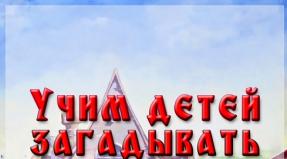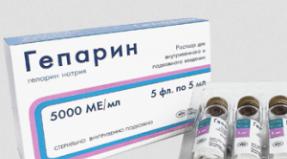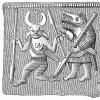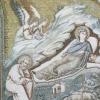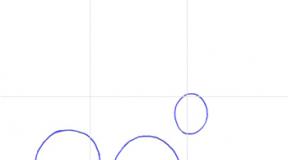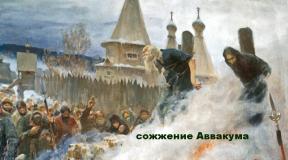Documents for obtaining a qualification category. Certification of specialists with higher professional education. Requirements for the preparation of a doctor's certification report
GENERAL REQUIREMENTS
to the preparation of a certification report for the assignment of a qualification category in diagnostic specialties
(radiology, ultrasound diagnostics, endoscopy, functional diagnostics, clinical laboratory diagnostics, bacteriology,
laboratory genetics, pathological anatomy, forensic medical examination)
A doctor's attestation report on the work done is a scientific and practical work in which a doctor analyzes the results of his professional practice and service activity over the past three years on all issues of his specialty.
1. Execution of the attestation report
1.1. General requirements (in accordance with GOST 7.32–91 and international standard ISO 5966–82): The attestation report should reflect as much as possible the author's own contribution to the activities of a medical organization. The report should be printed on one side of a standard A4 sheet of white paper, Times New Roman font, font size 12, line spacing - 1.5. The pages of the attestation report must have the following margins: left - at least 30 mm, right - at least 10 mm, top - at least 15 mm, bottom - at least 20 mm; paragraph indentation - 1-1.5 cm. The main text of the work should be aligned “in width”. The volume of the attestation report for the highest qualification category should be on average 30-35 sheets, for the first and second categories - 20-25 sheets, including printed text, tables, figures. Found errors and misprints should be corrected by shading with white paint (corrector) and then entering the corrections in black ink.
1.2. The title page of the doctor's attestation report: Above right - a statement signed by the head of the medical institution, certified by the round seal of the medical institution in which the doctor works (or worked). In the center - the title: “Report on work for such and such years (indicate the reporting period for doctors - 3 years), full name. doctor (write in full), position, in accordance with the entry in the work book, full name of the institution in accordance with the registered Charter, requested category, specialty (in accordance with the current nomenclature of specialties). At the bottom of the sheet - the name of the settlement, the year of work.
1.3. The second page of the doctor's attestation report: The second page of the attestation report must contain a table of contents indicating the page numbers of the main sections of the attestation work. The strict style of the table of contents should be observed, and the number “1” is never put on the title page, but it is taken into account that the next page has the number “2”. The absence of a table of contents will indicate a careless and formal design of the work.
1.4. Headers: Headings in the report are highlighted in a richer and larger font, never underlined or ending with a period. Headings are not subject to hyphenation. There should be a space of at least 6-12 points between the heading and the text. Higher-level headings are centered, lower-level headings are left-aligned. It is possible to highlight high-level headings in capital letters or special effects (shadow, bulge). It is advisable to number the headings and start the chapter on a new page. Headings are numbered in Arabic numerals, nested subheadings - separated by a period ("1", "1.1", "2.3.1", etc.).
1.5. Registration of tables, figures, graphs: The doctor's attestation report must include such elements of non-textual information as pictures, graphs, tables. For all these types of additional information, continuous numbering is applied throughout the work. For example, if there are two charts in the first chapter, then the first chart in the next chapter will have a third number, not the first one. All these elements of non-textual information are numbered if the corresponding element occurs more than once in the work. For example, if there is only one table in the work, then it is not numbered and the designation "Table 1" is not written above it. Do not overload your work with unnecessary tables and diagrams. Available tables and diagrams should be accompanied by comments and analytical explanations of the author, revealing the essence of the dynamics of various numbers.
1.5.1. Table decoration. The table is denoted by the word “Table” and a number written in Arabic numerals in the upper right corner (the “No.” sign is not indicated). This should be followed by a centered table heading. Tables, depending on their size, are placed after the text in which they are mentioned, or on the next page. The reference to the table in the text is drawn up as follows: see table. 1. If there is only one table in the work, then the word "table" is not abbreviated: see the table. Usually at the first link the word "see" not written: “From table. 1 shows that .... ". For further references, mark in parentheses: (see table. 1). When using the tables, consider the following recommendations: If possible, you should not use the column "number in order" ("p / p"), since in most cases it is not needed. Numbers are right-justified (for easier comparison), text left-aligned, and heading text left-aligned or centered. All table cells are vertically aligned in the middle. Duplicate items, for example, a percentage symbol ("%"), appear in the column or row header. One repeated word in the table is abbreviated with quotation marks, two or more - with the phrase “the same”. There should be no empty cells in the table. If you do not have the necessary data at your disposal, then it is written like this - "no information." If the table does not fit on one page and it has to be moved to the next, then on the new page they write the words "table continuation" and indicate its serial number, then repeat the cells containing the column headings and then the table continuation follows. Footnotes to the text or numbers in the table are made out only with asterisks (so that there is no confusion with the exponent) and are printed immediately below the table.
1.5.2. Registration of drawings and photographs: The name is written under the picture, which is preceded by the abbreviation "pic." and a sequential number in a number written in Arabic numerals (the “No.” sign is not indicated). All of this designation is centered below the figure. Photographs of macro or micropreparations, prints of X-rays and ultrasound images, copies of ECG and other materials must be of sufficient quality.
1.5.3. Application design: Applications, unlike other types of additional information, are located outside the text of the attestation report. Applications can include text, tables, pictures, photographs, drawings. All types of additional information in the appendices are numbered in the same way as in the main part of the work. Each application must start on a new page. Applications are designated by the word "APPENDIX", dialed in capital letters and a sequential number (Arabic numerals) in the upper right corner (without the "No." sign). This is followed by the centered title of the application.
2. Introduction. General characteristics of the medical organization in which the author directly works. General characteristics of the department in which the author directly works.
c) Human resources: indicate the staffing level according to the staffing table, certification and categorization of both medical and nursing staff, the author's proposals for strengthening and developing human resources.
G) Practical activities... One of the main sections of the work. Statistical data must be presented in accordance with the forms of the Federal Statistical Observation. More detailed statistics are allowed, but within reason. A comparative report of the department for the last three calendar years according to the Federal Statistical Survey must be submitted. Separately, specific indicators of the department's work should be reflected in comparison with republican, Russian and, if possible, world data. It is necessary to indicate the average annual workload for personnel and the average annual workload for a specific type of equipment. Personal assessment by the author of the efficiency of the department is encouraged.
2.3. Analysis of the author's own activities over the past three years... The key point of the certification work. In this section, the author must isolate his personal contribution from the total volume of the department's work. The author must specifically indicate the volume of work performed with detailing by type of research for the last three years, as detailed as possible, list what specific research methods he owns. The author must support his skills and abilities with a specific volume of research on various organs and systems. It is necessary to indicate which basic techniques you do not know, but would like to master in the short term and how.
2.4. Analysis of verification of own research: Comparison of diagnoses and conclusions for the last three years with the data of pathological examination of biopsy, surgical material or autopsy is carried out, analysis of the revealed inconsistencies and discrepancies, the reasons for their occurrence. In case of impossibility of pathomorphological verification, clinical data in dynamics, data of other research methods should be provided.
2.5. The most complex, rare clinical examples and observations: It is necessary to cite 2-3 of the most significant clinical observations, in which the author, as a specialist, played a key role in making the correct final clinical diagnosis. Each clinical example should be supported in a concise form by clinical, laboratory data, the results of pathomorphological and other research methods. Imprints of objective instrumental research methods (radiographs, ultrasound, ECG and other materials, macro - micrographs) should be of sufficient quality. Clinical examples should not be cluttered with prints of all types of research.
2.6. Abstract part of the work... This section should not exceed 5 typewritten pages. The desirable context for this section is to pose a specific problem. For example: Possibilities of X-ray computed tomography in differential diagnosis of diseases of the laryngopharynx at the present stage: accumulated experience, problems and development prospects. In this section, we can restrict ourselves to some very narrow issues of diagnosing a specific disease, which have not yet been properly resolved at the present stage. In this section, you can cite one of the published works of the author himself, including in co-authorship. The abstract part of the work should not be devoted to the description of any well-known, generally accepted research methods or the description of the technical parameters of any medical device.
2.7. Conclusion... In a short, arbitrary form, the author gives reasoning about the practical activities of the department, about his own personal contribution to the work of the department, about the reasons that led to diagnostic defects and measures to eliminate them in the future.
2.8. conclusions... Conclusions should logically follow from the material presented. The clear wording and clear context of the conclusions are indicative of the analytical ability of the author of the work.
2.9. Practical advice and suggestions... The author's recommendations and his suggestions will be analyzed by the main freelance specialists of the Ministry of Health of the Republic of Sakha (Yakutia). The most relevant practical recommendations and proposals will be taken into account for further implementation at a higher level.
2.10. Bibliographic index... The list of references should not exceed 15-20 sources. It is advisable to indicate the most significant sources of the last 5 years, including the original articles used in writing the report.
2.11. List of published works... If the author has publications, it is necessary to attach a list of his own scientific works indicating the output data (the title of the thesis of the report or article, the name of the collection or medical scientific journal, the year of issue, place of publication, page numbers, etc.), the titles of the reports with which the author spoke at symposia, meetings of scientific societies and conferences over the past 3 years. If there are patents, inventions or rationalization proposals, copies must be submitted.
MINISTRY OF HEALTH AND SOCIAL DEVELOPMENT OF THE ARKHANGEL REGIONREGIONAL CERTIFICATION COMMISSION
of the Ministry of Health and Social Development of the Arkhangelsk Region on certification of specialists with secondary medical and higher nursing education
RECOMMENDATIONS FOR THE PREPARATION OF DOCUMENTS FOR CERTIFICATION AND PREPARING A REPORT ON THE WORK OF A SPECIALIST WITH SECONDARY MEDICAL AND HIGHER NURSING EDUCATION
Arkhangelsk
Recommendations for the preparation of documents for certification and preparation of a report on the work of a specialist with secondary medical and higher nursing education were drawn up by members of the regional attestation commission for attestation of specialists with secondary medical and higher nursing education working in healthcare organizations of the Arkhangelsk region and members of the Council for the quality of postgraduate education of specialists with secondary medical education.
The recommendations are based on the regulatory legal acts of the Russian Federation and the Arkhangelsk region, contain criteria for obtaining qualification categories, requirements for the preparation of a report on the work of a specialist, an application.
© State educational institution of secondary vocational education "Arkhangelsk Medical College", 2011
CONV. print l. 1.4
List of documents for certification ……………………………………… 8
Criteria for obtaining a qualification category ………………… ...… 10
Requirements for the preparation of a report on the work of a specialist ...…………… ... 12
Appendices: ………………………………………………………… ....… .16
Application …………………………………………………… ......….… .16
Attestation sheet ……………………………………… ... …… ..... 18
Title page of the specialist's report …………………………….… ... 20
Samples of tables and illustrations design …………………… ..... 21
A sample of the list of used sources ... ... ... ... 22
GENERAL PROVISIONS
Certification of specialists with secondary medical and higher nursing education in the Arkhangelsk region is an activity related to obtaining (confirmation) of a qualification category.
The result of the certification is:
assignment (confirmation) of a qualification category;
refusal to assign (confirm) a qualification category;
downgrading of the qualification category;
removal of the qualification category.
Specialists with secondary medical and higher nursing education in the Arkhangelsk region who have permission to engage in medical activities, with the exception of those holding medical positions, are subject to certification.
The certification is carried out on a voluntary basis.
When considering the issue of assignment (confirmation) of a qualification category, professional qualifications, compliance with professional and job requirements, the level of theoretical training, competence, as well as the ability to perform official duties in accordance with the position held are assessed.
The qualification of a specialist is determined by three qualification categories: the second, the first and the highest. When assigning qualification categories, it is recommended to follow the specified sequence: the second qualification category is assigned to a specialist with secondary medical or higher nursing education who has experience in the attested specialty for at least three years, the first qualification category - at least five years, the highest qualification category - at least seven years.
In exceptional cases, the attestation commission may decide on the assignment of a qualification category without presenting the established requirements for the length of service and the sequence of assignment of a qualification category, provided there is a corresponding justified recommendation from the administration of the institution. This takes into account the high theoretical and practical training of a specialist, great personal contribution and merits in improving the quality of medical care to the population, the introduction of new advanced technologies, rationalization proposals, improving the organization of the treatment and diagnostic process, effective organizational and methodological, pedagogical and scientific work.
Specialists who have undergone advanced training in the attested specialty within the last five years are admitted to certification.
A specialist can obtain a qualification category in specialties corresponding to both the main and the combined position.
The assigned (confirmed) qualification category is valid for five years from the date of the issuance of the order on its assignment.
Recommendations for the preparation of documents for certification and the preparation of a report on the work of a specialist with secondary medical and higher nursing education in the Arkhangelsk region were developed on the basis of:
The Constitution of the Russian Federation (hereinafter referred to as the RF);
Civil Procedure Code of the Russian Federation of November 14, 2002 No. 138-FZ (with subsequent amendments);
Labor Code of the Russian Federation of December 30, 2001 No. 197-FZ (with subsequent amendments);
Federal Law of July 22, 1993 No. 5487-1 "Fundamentals of RF Legislation on the Protection of Citizens' Health" (with subsequent amendments);
Federal Law of July 27, 2006 No. 152-FZ "On Personal Data";
Order of the Ministry of Health and Social Development of the Russian Federation of July 23, 2010 N 541n "On the approval of the Unified qualification reference book of positions of managers, specialists and employees, section" Qualification characteristics of positions of workers in the health sector ";
Order of the Ministry of Health of the Russian Federation of August 09, 2001 No. 314 "On the procedure for obtaining qualification categories " ;
Letter of the Ministry of Health of the Russian Federation of November 13, 2001 No. 2510 / 11568-01-32 "On the application of the regulation on the procedure for obtaining qualification categories by specialists working in the health care system of the Russian Federation";
Letters of the Ministry of Health of the Russian Federation of April 27, 2004 No. 2510 / 3251-04-32 "On certification for qualification categories of general practitioners (family doctors) and nurses";
Order of the Ministry of Healthcare and Social Development of the Russian Federation of April 16, 2008 No. 176n "On the nomenclature of specialties of specialists with secondary medical and pharmaceutical education in the field of healthcare in the Russian Federation";
Order of the Ministry of Health and Social Development of the Russian Federation of April 23, 2009 No. 210n "On the nomenclature of specialties for specialists with higher and postgraduate medical and pharmaceutical education in the health sector of the Russian Federation";
Orders of the Department of Health of the Arkhangelsk Region dated July 30, 2008 No. 92-ro "On the procedure for obtaining qualification categories by specialists with secondary medical and higher nursing education, working in healthcare organizations of the Arkhangelsk Region" (except for the third paragraph of clause 1);
Order of the Ministry of Health and Social Development of the Arkhangelsk Region of September 16, 2010 No. 760-rd "On the Regional Attestation Commission and Subcommittees for Attestation of Specialists with Secondary Medical and Higher Nursing Education, Working in Health Care Organizations of the Arkhangelsk Region";
State standard of the Russian Federation GOST R 6.30-2003 “Unified system of organizational and administrative documentation.
requirements for paperwork ".
LIST OF DOCUMENTS FOR CERTIFICATION
3 months before the expiration of the previously assigned qualification category, a specialist who has expressed a desire to receive (confirm) a qualification category submits the following documents to the regional attestation commission in accordance with the specified procedure:
An application addressed to the chairman of the regional certification commission with a request to consider the submitted certification material and assign (confirm) the highest, first, second qualification category for the declared specialty (application form - Appendix 1);
Attestation sheet of the established form, certified by the signature of the chief physician and the seal of the institution (form of the attestation sheet - Appendix 2);
Service description (paragraph 20 of the attestation sheet) with the obligatory indication of the opinion of the head of the institution in terms of the recommended qualification category (certified by the signature of the chief physician and the seal of the institution);
Original certificate of the previously assigned qualification category;
A copy of the certificate of the previously assigned qualification category (certified by the personnel department);
A copy of the document on obtaining secondary vocational education of a medical profile (certified by the personnel department);
A copy of the certificate for the attested specialty (certified by the HR department);
A copy of the document on the passage of primary specialization in the attested specialty in accordance with the order of the Ministry of Health of the Russian Federation dated June 5, 1998 No. 186 "On advanced training of specialists with secondary medical and pharmaceutical education" (certified by the personnel department);
A copy of the certificate of advanced training in the attested specialty for the last five years (certified by the personnel department);
A copy of the work book (certified by the HR department);
A copy of the document on the change of surname (certified by the HR department);
An extract from the order (a copy of the order) on the extension of the qualification category, upon leaving the parental leave for a child up to 1.5 and up to 3 years (certified by the HR department);
A copy of the receipt or (payment order) on payment for passing the certification;
A report on the work of a specialist, certified by the head and the seal of the institution.
Acceptance of documents is carried out by the secretary of the regional certification commission at the address:
163045, Arkhangelsk, Sibiryakovtsev Ave., 19.
Phone: 27-53-64, fax 27-58-92
Reception hours on weekdays (Monday - Thursday):
from 9.00 to 16.45; lunch from 13.15 to 13.45
Last Wednesday of every month from 9.00 to 12.00
Friday: not a visiting day
Meetings of the regional certification commission are held on the last Wednesday of each month from 13.00
Payment for passing the certification is made at the cash desks of the GOU SPO "Arkhangelsk Medical College" at the addresses:
163045 Arkhangelsk, Sibiryakovtsev ave., 19 (department of additional education) or
163002 Arkhangelsk, Novgorodsky avenue, 21.
CRITERIA FOR OBTAINING A QUALIFICATION CATEGORY
Second qualification category
work experience in the attested specialty for at least three years, at the last place of work at least 1 calendar year;
possession of theoretical knowledge and practical skills in accordance with the duties performed;
application of new methods of nursing patient care;
mastering new equipment in operation;
the ability to analyze their professional activities;
participation in various forms of professional development (seminars, competitions, conferences, etc.).
work experience in the attested specialty for at least five years;
good possession of theoretical knowledge and practical skills in accordance with the duties performed;
the ability to analyze the activities of your structural unit;
participation in the preparation and implementation of various forms of advanced training (seminars, competitions, conferences, etc.); speeches at events inside medical and preventive institutions (hereinafter - LPU).
work experience in the attested specialty for at least seven years;
perfect possession of theoretical knowledge and practical skills in accordance with the requirements of the qualification category and the duties performed;
introduction into practice of new methods of prevention, health education, nursing care for patients;
mastering new technologies and equipment when carrying out various kinds of interventions;
the ability to analyze professional activities at the level of a healthcare facility and its structural units;
study and implementation of new forms of work of nursing personnel;
teaching and mentoring;
participation in the preparation and conduct of various forms of advanced training (seminars, competitions, conferences, etc.) with speeches at events at the level of health care facilities, region.
REGISTRATION REQUIREMENTS
SPECIALIST WORK REPORT
The report is drawn up on sheets of A4 format, Times New Roman font, size 14, line spacing - 1.5. Margins: left - 3 cm, right - 1.5 cm, bottom - 2 cm, top - 2 cm. Alignment - in width (excluding headings).
The headings of the structural parts of the report are printed in capital letters (center alignment). There is no full stop after the heading. No underscores or hyphens in heading words are allowed.
Each structural part starts on a new page.
(full name of the institution in accordance with the registered Charter)
for certification for a qualification category in a specialty
_______________________________________________________________________
(the specialty is indicated in accordance with the current nomenclature of specialties)
AGREED:
Head nurse (midwife, paramedic)
_______________________________________________________________________
(signature, full name)
"___" _______________ 20___
Appendix 4
DESIGN SAMPLES IN THE TEXT OF TABLES AND ILLUSTRATIONS
Illustrations include graphs, diagrams, diagrams, photographs, and the like. All illustrations in the text have a conventional abbreviated name and designation - rice.
Each table, chart, graph, etc. should be referenced in the text of the report, for example: see fig. 3 or see table 2.
Sample table design
Table 1
Comparative characteristics of used disinfectants
Sample illustrations
Rice. 1. Distribution of patients of the department by nosology in 2009
Appendix 5
SAMPLE FORMATION OF THE LIST OF USED SOURCES
Gaboyan Ya.S. Organization of the activities of nursing personnel in the nursing department on the basis of the city clinical hospital / Ya.S. Gaboyan, O. V. Loginova // Nurse. - 2006. - No. 6. - S. 7-9.
Dvoynikov S. I. Management of development of nursing personnel: textbook. allowance / S. I. Dvoinikov, L. A. Karaseva. - M .: FGOU "VUNMTs Roszdrav", 2006. - 119 p.
Kamynina N.N. Standardization of nursing activities: modern approaches to improving the quality of medical care / N.N. Kamynina // Problems of standardization in health care. - 2007. - No. 12. - P. 3 - 6.
Kosarev V.V. Occupational diseases of medical workers / V.V. Kosyrev, S.A. Babanov. - Samara: Etching, 2009 .-- 232 p.
Neonatology: national guidelines / ed. N.N. Volodin. - M .: GEOTAR-Media, 2007 .-- 848 p.
Polunina N.V. Public health and health care: textbook / N.V. Polunina. - M .: MIA, 2010 .-- 544 p.
On August 4, 2013, the Order of the Ministry of Health of the Russian Federation of April 23, 2013 No. 240n "On the procedure and timing of certification for obtaining a qualification category" (hereinafter referred to as the Procedure) came into effect. In this regard, the Order of the Ministry of Health and Social Development of the Russian Federation of July 25, 2011 No. 808n "On the procedure for obtaining qualification categories by medical and pharmaceutical workers" has become invalid. Today we will tell you what has changed in the certification procedure for medical and pharmaceutical workers, and compare the previous and current procedures. .
General Provisions
The procedure establishes the rules for medical and pharmaceutical workers to pass certification. This procedure applies to specialists with secondary medical and pharmaceutical education, specialists with higher professional education, carrying out medical and pharmaceutical activities.As before, certification of specialists is carried out for positions provided for by the current nomenclature of positions for medical and pharmaceutical workers, for three qualification categories (second, first and highest) once every five years. In this case, the qualification category assigned to the employee is also valid for five years from the date of the issuance of the corresponding administrative act. Specialists can apply for the assignment of a higher qualification category before the expiration of the named period, but not earlier than three years from the date of the qualification category assignment.
The procedure has adjusted the requirements for work experience to obtain qualification categories. Work experience in the specialty now does not depend on the education received by the employee. So, to obtain the second qualification category, you need at least three years of work experience in the specialty (in position), to obtain the first category - at least five years of experience, the highest category - at least seven years of experience.
For comparison, let's say: before, in order to obtain the highest qualification category, it was necessary to have at least 10 years of experience for specialists with higher professional education and at least seven years of experience for specialists with secondary vocational education.
In addition to the length of service, the Procedure establishes requirements for theoretical knowledge and practical skills of specialists. In particular, based on NS. 8 of the Procedure, a specialist applying for the second qualification category must:
- have theoretical training and practical skills in the field of their professional activities;
- navigate modern scientific and technical information, possess the skills of analyzing quantitative and qualitative performance indicators, drawing up a report on the work.
- have theoretical training and practical skills in the field of their professional activities and related disciplines;
- to use modern methods of diagnosis, prevention, treatment, rehabilitation and to own medical and diagnostic equipment in the field of his professional activities;
- be able to competently analyze the indicators of professional activity and navigate in modern scientific and technical information;
- participate in solving tactical issues of organizing professional activities.
To obtain the highest qualification category, on the basis of clause 10 of the Procedure, a specialist must:
- have high theoretical training and practical skills in the field of professional activities carried out by him, know related disciplines;
- to use modern methods of diagnosis, prevention, treatment, rehabilitation and to own medical and diagnostic equipment in the field of his professional activities;
- be able to evaluate the data of special research methods in a qualified manner in order to establish a diagnosis;
- navigate modern scientific and technical information and use it to solve tactical and strategic issues of professional activity.
Formation of certification commissions
To carry out certification, as before, commissions are created, which, depending on the bodies that form them, can be central, departmental and territorial. The rules for the formation of commissions and their composition are regulated in detail by the Procedure.The certification commission consists of a coordination committee (hereinafter referred to as the committee) that carries out the functions of organizing the activities of the certification commission and expert groups by specialties (hereinafter referred to as expert groups), which review documents and conduct a qualification exam.
The attestation commission includes:
- leading specialists of organizations engaged in medical and pharmaceutical activities;
- representatives of medical professional non-profit organizations, employers;
- representatives of the public authority or organization that form the certification commission, and other persons.
The general management of the activities of the attestation commission is carried out by the chairman of the commission, who is also the chairman of the committee. The deputy chairman of the attestation commission is recognized as the deputy chairman of the committee and acts as the chairman of the attestation commission in his absence.
There is also the position of the executive secretary of the commission, who registers and considers documents submitted to the certification commission by specialists who have expressed a desire to undergo certification to obtain a qualification category, for compliance with their requirements for the list and execution of documents, forms materials for sending to expert groups, prepares materials for meetings and draft committee decisions.
The expert group also has a chairman, deputy chairman and executive secretary.
Note that the Procedure defines in some detail the functions of both the committee and the expert groups. For example, the committee coordinates the work of expert groups, determines the methods, methods and technologies for assessing the qualifications of specialists, prepares and submits for approval to the body that created the certification commission a draft regulatory act on assigning qualification categories to specialists. Expert groups, in turn, consider the documents submitted by specialists, prepare conclusions on reports, conduct test control of knowledge and interviews, make decisions on the issues of assigning qualification categories to specialists.
On the basis of clause 18 of the Procedure, meetings of the committee are held, if necessary, by decision of its chairman, and meetings of expert groups are held at least once a month. A meeting of a committee or expert group is considered competent if more than half of the members of the committee or expert group, respectively, are present at it.
The decisions of the committee and the expert group are made by an open vote by a simple majority of votes of the members present at the meeting. In case of equality of votes, the vote of the chairperson of the meeting of the committee or expert group is decisive ( p. 19 of the Procedure). It should be noted that in the previous certification procedure for making a decision, it was necessary to have at least 2/3 of the members of the commission, and in the event of an equality of votes, the decision was considered to be in favor of the specialist.
The decisions of the committee and the expert group are formalized in protocols, which are signed by all members of the committee and the expert group who attended the meeting of the committee and the expert group, respectively.
Certification procedure
Specialists who have expressed a desire to undergo certification to obtain a qualification category submit a set of documents to the certification commission. The list of documents included in the qualification documentation has practically not changed, but there is one exception: now, instead of a qualification sheet, a specialist must submit an attestation sheet.note
In the previous procedure for obtaining qualification categories, it was established that the head of a medical or pharmaceutical organization must create conditions for specialists to obtain qualification categories when interacting with the commission, submitting documentation and notifying a specialist. Now there are no such obligations for assistance.
An innovation in the submission of documents is the need to submit a duly certified translation into Russian of documents issued on the territory of a foreign state and executed in a foreign language.
Also new is the prohibition of participation in the submission of documents by an official of the organization authorized to interact with the organization in which the specialist carries out professional activities with the certification commission. The procedure establishes that only the specialist himself can send by mail or submit documents in person. In addition, the requirement for stitching documents has been eliminated.
The documents must be sent to the address of the state authority or the organization that created the certification commission by mail or submitted personally by a specialist no later than four months before the expiration of the existing qualification category. If this period is violated, the qualification examination may be held later than the expiration date of the existing qualification category.
For your information
Clause 16 of the Procedure establishes that certification can be carried out using telecommunication technologies (remote certification) and in the form of an off-site meeting.
The procedure has adjusted the rules and timing of certification. In particular, on the basis of clause 22 of the Procedure, documents received by the certification commission are registered by the executive secretary of the committee on the day they are received by the certification commission. Within seven calendar days from the date of registration of documents, they are submitted for consideration to the chairman of the committee (previously, the documentation was registered after a seven-day check of its compliance with the completeness requirements).
If the documents provided for by the Procedure are absent or they are incorrectly executed, the executive secretary of the committee must send the specialist a letter of refusal to accept documents, explaining the reason for the refusal, also within seven days (previously this period was 14 calendar days). In this case, the specialist can send the documents again. At the same time, he was previously given a month to correct shortcomings, but now such a period has not been set at all.
The chairman of the committee, no later than 14 calendar days from the date of registration of documents, determines the composition of the expert group for attestation and sends the specialist's documents to the chairman (clause 23 of the Procedure). In this case, the expert group must consider them no later than 30 calendar days from the date of registration of documents, approve the conclusion on the report and appoint a date and place for the test control of knowledge and interviews (previously, the period for consideration of documents was 14 calendar days).
Note that the requirements for the content of the report have changed. In particular, on the basis of clause 24 of the Procedure, it is no longer necessary to take into account:
- the duration and timing of the last professional development;
- forms of self-education used by a specialist;
- correspondence of the amount of theoretical knowledge, actual diagnostic and therapeutic practical skills to qualification requirements.
Test control of knowledge and interviews are carried out no later than 70 calendar days from the date of registration of documents.
Based on clause 27 of the Procedure, based on the results of the qualification exam, the expert group can make one of two decisions: to assign or refuse to assign a qualification category to a specialist. Let us recall that earlier there were several types of decisions made by the expert group. For example, it was possible to upgrade the second qualification category with the assignment of the first, confirm the previously assigned qualification category, remove the first (highest) qualification category with the assignment of a lower category, or deprive a specialist of the qualification category.
The decision on the assignment or refusal to assign a qualification category to a specialist is made by the expert group no later than 70 calendar days from the date of registration of documents, drawn up by the minutes of the meeting of the expert group and entered in the specialist's certification sheet by the executive secretary of the expert group. If a specialist is denied the assignment of a qualification category to a specialist, the protocol shall indicate the grounds on which the expert group made the appropriate decision. And the decision to refuse to assign a qualification category to a specialist can be made on the following grounds:
- the presence in the conclusion of the report of a negative assessment of the theoretical knowledge or practical skills of a specialist necessary to obtain the qualification category declared by him;
- the presence of an unsatisfactory mark based on the results of the test control of knowledge;
- failure of a specialist to pass a test control of knowledge or an interview.
note
An ordering act on the assignment of a qualification category to a specialist must be issued by a public authority or an organization that created an attestation commission no later than 110 calendar days from the date of registration of documents. Previously, an order on assigning a qualification category to a specialist was issued within a month from the moment the commission made a decision.
The specialist, on the other hand, must receive, by mail or in his hands, an extract from the administrative act on the assignment of a qualification category to him no later than 120 calendar days from the date of registration of documents.
Note that the Procedure has increased the period for appealing the decision of the attestation commission from 30 days to a year. The period for appeal is counted from the date of the decision by the certification commission.
As you can see, the procedure for certification of medical and pharmaceutical workers has undergone significant changes in terms of the timing of certification, the procedure for processing documents and certification results. Moreover, there are unclear points. In particular, it was previously envisaged that a specialist, within a week from the date of the issuance of the order on awarding him a qualification, was drawn up and issued an appropriate document. Now the specialist is given only an extract from the order on assigning him a qualification category, and not a word is said about the document. We believe that these points will be clarified by the competent authorities in the course of the Procedure.
Nomenclature of specialties of specialists with higher and postgraduate medical and pharmaceutical education in the field of health care of the Russian Federation, approved by By order of the Ministry of Health and Social Development of the Russian Federation of 23.04.2009 No. 210n.
Registered with the Ministry of Justice of the Russian Federation on July 5, 2003.
Registration number 29005
In accordance with subparagraph 5.2.116 of the Regulation on the Ministry of Health of the Russian Federation, approved by the decree of the Government of the Russian Federation dated June 19, 2012 No. 608 (Collected Legislation of the Russian Federation, 2012, No. 26, Art. 3526),
I ORDER:
- To approve the attached Procedure and terms for medical workers and pharmaceutical workers to pass certification to obtain a qualification category.
- To recognize as invalid the order of the Ministry of Health and Social Development of the Russian Federation of July 25, 2011 No. 808n "On the procedure for obtaining qualification categories by medical and pharmaceutical workers" (registered by the Ministry of Justice of the Russian Federation on September 23, 2011, registration No. 21875).
- Control over the implementation of this order shall be entrusted to the Deputy Minister of Health of the Russian Federation I.N. Kagramanyan.
The minister
IN AND. SKVORTSOVA
Approved
by order of the Ministry of Health
Russian Federation
dated April 23, 2013 No. 240n
The procedure and terms for medical workers and pharmaceutical workers to pass certification to obtain a qualification category
I. General Provisions
1. These Procedure and terms for medical workers and pharmaceutical workers to pass certification for obtaining a qualification category (hereinafter - certification and Procedure, respectively) determine the rules for medical workers and pharmaceutical workers to pass certification and apply to specialists with secondary medical and pharmaceutical education, specialists with higher professional education carrying out medical and pharmaceutical activities (hereinafter referred to as specialists).
2. Certification of specialists with secondary and higher medical and pharmaceutical education is carried out in the specialties provided for by the current nomenclature of specialties for specialists with medical and pharmaceutical education (hereinafter referred to as specialties).
3. Attestation of specialists with other higher professional education and carrying out medical and pharmaceutical activities is carried out according to the positions provided for by the current nomenclature of positions of medical and pharmaceutical workers (hereinafter - positions).
4. Attestation is voluntary and is carried out by attestation commissions in three qualification categories: second, first and highest.
5. Certification is carried out once every five years. The assigned qualification category is valid throughout the territory of the Russian Federation for five years from the date of the issuance of the administrative act on the assignment.
6. Specialists can apply for a higher qualification category not earlier than in three years from the date of the issuance of the administrative act on the assignment of the qualification category.
7. During certification, the theoretical knowledge and practical skills necessary for the performance of professional duties in the relevant specialties and positions are assessed, based on the results of the qualification exam.
The qualification exam includes an expert assessment of the report on the professional activity of a specialist (hereinafter referred to as the report), test knowledge control and an interview.
8. The specialist applying for second qualification category, must:
- have theoretical training and practical skills in the field of their professional activities;
- navigate modern scientific and technical information, possess the skills of analyzing quantitative and qualitative performance indicators, drawing up a work report;
- have work experience in the specialty (in position) for at least three years.
9. Specialist applying for first qualification category, must:
- have theoretical training and practical skills in the field of ongoing professional activities and related disciplines;
- to use modern methods of diagnosis, prevention, treatment, rehabilitation and to own medical and diagnostic equipment in the field of professional activities;
- be able to competently analyze the indicators of professional activity and navigate in modern scientific and technical information;
- participate in solving tactical issues of organizing professional activities;
- have work experience in the specialty (in position) for at least five years.
10. The specialist applying for the highest qualification category, must:
- have high theoretical training and practical skills in the field of their professional activities, know related disciplines;
- to use modern methods of diagnosis, prevention, treatment, rehabilitation and to own medical and diagnostic equipment in the field of professional activities;
- be able to evaluate the data of special research methods in a qualified manner in order to establish a diagnosis;
- navigate modern scientific and technical information and use it to solve tactical and strategic issues of professional activity;
- have work experience in the specialty (in position) for at least seven years.
11. Qualification categories assigned to specialists prior to the entry into force of this Procedure shall be retained for the period for which they were assigned.
II. Formation of certification commissions
12. For certification of specialists:
- a central certification commission is created by the federal executive body responsible for the development and implementation of state policy and legal regulation in the field of health care;
- federal executive bodies, state academies of sciences, organizations with subordinate medical organizations and pharmaceutical organizations, establish departmental certification commissions;
- executive authorities of the constituent entities of the Russian Federation are created territorial certification commissions.
13. Attestation commissions in their activities are guided by the Constitution of the Russian Federation, federal constitutional laws, federal laws, decrees and orders of the President of the Russian Federation, decrees and orders of the Government of the Russian Federation, regulatory legal acts of federal executive bodies and state authorities of the constituent entities of the Russian Federation, as well as this Procedure.
14. The Attestation Commission consists of the Coordination Committee (hereinafter referred to as the Committee), which carries out the functions of organizing the activities of the Attestation Commission, including ensuring the activities of the Attestation Commission in the intervals between meetings, and expert groups by specialties (hereinafter referred to as the Expert Groups) that carry out certification of specialists in terms of consideration documents and qualification exam.
The certification commission includes leading specialists of organizations engaged in medical and pharmaceutical activities, representatives of medical professional non-profit organizations, employers, government bodies or organizations that form the certification commission, and other persons.
The personal composition of the attestation commission is approved by an administrative act of the state authority or organization that created the attestation commission.
15. The Chairman of the Attestation Commission is the Chairman of the Committee, carries out general management of the activities of the Attestation Commission, presides over the meetings of the Committee, organizes the work of the Attestation Commission, exercises general control over the implementation of decisions taken by the Attestation Commission, distributes responsibilities among the members of the Attestation Commission.
The Deputy Chairman of the Attestation Commission is the Deputy Chairman of the Committee, acts as the Chairman of the Attestation Commission in his absence, performs other functions on behalf of the Chairman of the Attestation Commission.
The executive secretary of the attestation commission is the executive secretary of the Committee, appointed from among the representatives of the state authority or organization that forms the attestation commission.
The executive secretary of the attestation commission registers and considers documents submitted to the attestation commission by specialists who have expressed a desire to undergo certification to obtain a qualification category, for compliance with the requirements for the list and execution of documents established by these Procedure and terms, forms materials for sending to Expert groups, prepares materials for meetings Of the Committee, draft decisions of the Committee, perform other functions in accordance with this Procedure and on behalf of the chairman of the attestation commission.
The deputy executive secretary of the attestation commission performs the duties of the executive secretary of the attestation commission in his absence, performs other functions on behalf of the chairman of the attestation commission.
The Chairman of the Expert Group carries out general management of the activities of the Expert Group, chairs the meetings of the Expert Group, organizes the work of the Expert Group, and distributes responsibilities among the members of the Expert Group.
The Deputy Chairman of the Expert Group acts as the Chairman of the Expert Group in his absence, performs other functions on behalf of the Chairman of the Attestation Commission and the Chairman of the Expert Group.
The Executive Secretary of the Expert Group prepares materials for the meeting of the Expert Group and draft decisions of the Expert Group, performs other functions in accordance with this Procedure and on behalf of the Chairman of the Expert Group.
16. The main functions of the Committee are:
- organization of the activities of the certification commission;
- coordination of the work of the Expert Groups;
- determination of the venue for the meetings of the Expert Groups;
- determination of methods, methods and technologies for assessing the qualifications of specialists;
- consideration of the need to use variable certification methods: remote using telecommunication technologies (hereinafter referred to as remote certification), offsite meeting;
- sending to the public authority or organization that created the certification commission proposals for holding an off-site meeting of the Expert group or remote certification, taking into account the level of workload of the Expert group, the grounds on which an off-site meeting of the Expert group or remote certification is planned, the number of specialists wishing to undergo certification, the availability of equipped premises, the ability to comply with the requirements established by this Procedure;
- preparation and submission for approval to the state authority or the organization that created the attestation commission of the draft administrative act of the state authority or organization on the assignment of qualification categories to the specialists who have passed the attestation;
- organization of consideration of controversial issues, including in case of disagreement of a specialist with the decision of the Expert Group, and making decisions on them;
- record keeping of the attestation commission.
17. The expert groups carry out the following functions:
- consider documents submitted by specialists in accordance with this Procedure;
- prepare conclusions on reports submitted in accordance with this Procedure;
- carry out a test control of knowledge and an interview;
- make decisions on the assignment of a qualification category to specialists.
18. The main form of activity of the attestation commission is meetings.
Meetings of the Committee are held, if necessary, by decision of the Chairman of the Committee, meetings of the Expert Groups are held at least once a month.
The Committee and the Expert Groups independently determine the procedure for conducting their meetings and activities in the intervals between meetings, taking into account the provisions of this Procedure.
A meeting of the Committee or Expert group is considered competent if more than half of the members of the Committee or Expert group are present.
19. The decision of the Committee and the Expert group is made by an open vote by a simple majority of votes of the members of the Committee or the Expert group present at the meeting. In case of equality of votes, the vote of the chairperson of the meeting of the Committee or the Expert Group is decisive.
When considering the issue of assigning a qualification category to a specialist who is a member of the certification commission, the latter does not participate in voting.
The decision of the Committee and the Expert group is formalized in a protocol, which is signed by all members of the Committee or Expert group who attended the meeting of the Committee or Expert group.
A member of the Committee or Expert group who does not agree with the decision made has the right to state in writing a dissenting opinion, which is attached to the minutes of the meeting of the Committee or Expert group.
III. Conducting certification
20. Specialists who have expressed a desire to pass certification to obtain a qualification category shall submit the following documents to the certification commission:
If there are documents issued on the territory of a foreign state and executed in a foreign language, the specialist submits a duly certified translation of documents into Russian.
- statement addressed to the chairman of the attestation commission , which indicates the surname, name, patronymic (if any) of the specialist, the qualification category for which he applies, the presence or absence of a previously assigned qualification category, the date of its assignment, consent to the receipt and processing of personal data for the purpose of assessing qualifications, personal signature of the specialist and date;
- a printed certification sheet, certified by the HR department of the organization carrying out medical or pharmaceutical activities, the employee of which is a specialist, in the form according to the recommended model (Appendix No. 1 to this Procedure);
- a report on professional activities (hereinafter referred to as a report) personally signed by a specialist, agreed with the head and certified by the seal of the organization carrying out medical or pharmaceutical activities, the employee of which is a specialist (the report should contain an analysis of professional activities for the last three years of work - for specialists with higher professional education and for the last year of work - for specialists with secondary vocational education, including a description of the work performed, data on rationalization proposals and patents, conclusions of a specialist about his professional activity, proposals for its improvement);
- copies of documents on education (diploma, certificates, certificates, specialist certificates), work record, certified in the prescribed manner;
- in the event of a change in the surname, first name, patronymic - a copy of the document confirming the fact of changing the last name, first name, patronymic;
- copy of the document on the assignment of the existing qualification category (in the presence of).
In case of refusal of the head of an organization carrying out medical or pharmaceutical activities, of which the specialist is an employee, a written explanation of the head of the organization carrying out medical or pharmaceutical activities, of which the specialist is an employee, about the reasons for the refusal, which is attached to the application for obtaining a qualification category, is issued to the specialist in the approval of the report. ...
1.3. The qualification exam aims to stimulate the growth of a specialist's qualifications, improve the selection, placement and use of personnel in the health care system of the Russian Federation, to increase personal responsibility for the performance of professional and official duties.
1.4. The process of obtaining qualification categories is provided by certification commissions and includes procedures for obtaining qualification categories - the stages of assessing the conformity of professional knowledge and skills of specialists (hereinafter referred to as qualification procedures).
1.6. Principles of the qualification exam:
- independence and objectivity of expert assessments;
- openness of qualification procedures;
- consistent assignment of qualification categories;
- compliance with the norms of professional ethics;
- adherence to a strict sequence of qualification procedures provided for by this Regulation;
- high qualification and competence of persons carrying out qualification procedures.
1.12. Certification commissions carry out their activities in accordance with the sequence of qualification procedures established by this Regulation. Qualification procedures are aimed at assessing the professional qualifications and competence of specialists.
1.13. A specialist can obtain a qualification category both in the main and in the combined specialty.
1.14. Qualification categories are assigned in accordance with the current nomenclature of specialties.
II. The procedure for obtaining qualification categories
2.1. Qualification categories are assigned to specialists with a level of theoretical training and practical skills corresponding to the qualification characteristics of specialists, and work experience in the specialty:
- the second - at least three years for specialists with higher and secondary vocational education;
- first - at least seven years for specialists with higher professional education and at least five years for specialists with secondary professional education;
- higher - at least ten years for specialists with higher professional education and at least seven years for specialists with secondary vocational education.
2.2. When assigning qualification categories, the following sequence is used: second, first, highest.
2.4. The head of the organization in which the specialist carries out professional activities creates conditions for:
- submission by a specialist of qualification documentation drawn up in accordance with the requirements for completeness and correctness;
- implementation of interaction between the organization and the certification commission regarding the procedure for obtaining a qualification category by a specialist;
- submission to the certification commission of information on the number of specialists who carry out professional activities in a medical organization and have passed the procedure for obtaining a qualification category (indicating the certification commission and the qualification category received), as well as specialists wishing to receive (confirm) a qualification category in the next calendar year;
- notification of a specialist who has expressed a desire to obtain a qualification category.
2.5. The requirements specified in clauses 2.3 and 2.4 of these Regulations regarding the need to certify the documents submitted by a specialist and ensure interaction between the organization and the certification commission do not apply to specialists who carry out professional activities in the private health care system.
2.6. The documents that make up the qualification documentation must be neatly executed and bound.
2.7. The qualification documentation is sent to the certification commissions by mail, as well as directly by a specialist, an official of the organization authorized to interact with the organization in which the specialist carries out professional activities with the certification commission.
2.8. In order to preserve the previously assigned qualification category, the specialist sends the qualification documentation to the certification commission no later than four months before the expiration of the qualification category. If the examination documentation is sent later than the specified period, the date of the qualification exam may be set after the expiration of the qualification category.
III. The order of the meeting of certification commissions
3.1. The meeting of the certification commission is scheduled within a period not exceeding three months from the date of registration of the examination documentation.
3.2. Specialists from federal state institutions under the jurisdiction of the Ministry of Health and Social Development of the Russian Federation submit qualification documentation to the Central Attestation Commission.
Specialists of state institutions under the jurisdiction of other federal executive bodies, executive bodies of the constituent entities of the Russian Federation submit qualification documentation to the relevant departmental certification commissions.
Specialists carrying out medical and pharmaceutical activities in the organizations of the state health care system of the constituent entity of the Russian Federation, the municipal health care system, as well as specialists carrying out professional activities in the private health care system, submit qualification documentation to the certification commissions of the constituent entities of the Russian Federation, on the territory of which they operate.
3.3. The qualification documentation received by the attestation commission is registered in the register of documents (a recommended sample is given in Appendix No. 4 to this Regulation) after checking its compliance with the completeness requirements and correct execution within 7 calendar days. In the event that the qualification documentation does not meet the specified requirements, the submitter of the qualification documentation (the official of the organization in which the specialist carries out professional activities, authorized to interact with the organization with the certification commission) shall be informed of the reasons for the refusal to accept the examination documentation with an explanation of the possibility of their elimination.
Refusal to accept qualification documentation received by the certification commission must be sent to the specialist no later than 14 calendar days from the date of receipt of the examination [probably qualification, but as it is written in the original] documentation to the certification commission.
To eliminate the shortcomings of the qualification documentation, the specialist is invited to eliminate the identified shortcomings within a month.
3.4. Control over the observance of the registration procedure, the requirements for completeness and the correct execution of the qualification documentation submitted to the certification commission is carried out by the executive secretary of the relevant certification commission.
3.5. The executive secretary of the certification commission, no later than one month from the date of registration of the qualification documentation, determines the expert group of the certification commission corresponding to the specialty (direction) declared in the qualification documentation, and agrees with its chairman the timing of the specialist qualification exam.
3.6. Based on the results of the examination of the qualification documentation, the chairman of the expert group determines the members of the expert group for reviewing the report on the professional activity of the specialist.
3.7. The chairman of the expert group determines the need to involve independent specialists (experts) in the review of the report on the professional activity of a specialist.
3.8. A review of a report on the professional activity of a specialist is signed by members of the expert group participating in the review, or by independent specialists (experts) and by the chairman of the expert group.
3.9. The review should reflect:
- possession of modern methods of diagnosis and treatment, adequate to the qualification requirements for specialists of the second, first and highest categories;
- participation of a specialist in the work of a scientific society or professional medical association;
- availability of publications and printed works;
- the duration and timing of the last professional development;
- forms of self-education used by a specialist;
- the correspondence of the amount of theoretical knowledge, actually performed diagnostic and therapeutic practical skills to the qualification requirements for specialists in the declared qualification category.
3.10. The term for the examination of qualification documentation by an expert group cannot exceed 14 calendar days.
3.11. Based on the results of the peer review, the expert group prepares an opinion on the assessment of the specialist's report and, together with the executive secretary of the attestation commission, determines the date of the meeting in the specialty declared in the qualification documentation.
The secretary of the expert group notifies the specialist of the date of the meeting.
3.12. As part of the meeting of the expert group, the specialist is tested and interviewed.
- Testing provides for the execution of test tasks, corresponding to the declared qualification category and specialty, and is recognized as a passed specialist, provided that at least 70% of correct answers to test tasks.
- Interview involves interviewing a specialist members of the expert group on theoretical and practical issues corresponding to the specialty declared in the qualification documentation.
3.13. At the meeting of the expert group, the secretary of the expert group keeps individual protocols of specialists undergoing qualification procedures (a recommended sample is given in Appendix No. 5 to these Regulations). Each individual protocol is certified by the members and the chairman of the expert group.
3.14. The decision on the compliance of a specialist with the declared category is made based on the results of testing, interviews and taking into account the assessment of the report on the specialist's professional activities and is entered into the qualification sheet.
3.15. The expert group of the attestation commission at the meeting makes one of the following decisions:
- assign the second qualification category;
- to raise the second qualification category with the assignment of the first;
- to raise the first qualification category with the assignment of the highest;
- confirm the previously assigned qualified category;
- remove the first (highest) qualification category with the assignment of a lower qualification category;
- to deprive the qualification category (second, first, highest);
- postpone the certification;
- refuse to assign a qualification category.
3.16. In case of deprivation, demotion or refusal to assign a higher qualification category in the individual protocol of the specialist, the reasons for which the expert group of the attestation commission made the appropriate decision are indicated.
3.17. The assessment of a specialist's qualifications is adopted by an open vote if there are at least 2/3 of the number of members of the expert group of the attestation commission at the meeting.
3.19. When deciding on the assignment of a qualification category to a specialist who is a member of the certification commission, the latter does not participate in the voting.
3.20. The specialist has the right to pass the re-qualification exam, but not earlier than one year after the decision is made on the discrepancy between the qualification category.
3.21. Individual protocols of the examiners are sent to the executive secretary of the attestation commission to prepare the minutes of the meeting of the attestation commission (a recommended sample is given in Appendix No. 6 to these Regulations). The minutes of the meeting of the expert group are certified by the members of the expert group and approved by the deputy chairman of the attestation commission.
3.22. Substitution of a member of the expert group by another person who is not part of it is not allowed.
3.23. The draft order on the assignment of a qualification category is prepared by the executive secretary of the attestation commission on the basis of its decision. The body under which the attestation commission was created issues an order on the assignment of a qualification category within one month.
3.24. Within a week from the date of the issuance of the order on the assignment of the qualification category, the executive secretary of the certification commission draws up a document on obtaining the qualification category, which is signed by the chairman of the certification commission and certified by the seal of the body under which it was created.
3.25. A document confirming the assignment of a qualification category is issued to a specialist or a person authorized by him (on the basis of a power of attorney) upon presentation of an identity document of the recipient, or sent through the postal service (with the consent of the specialist).
3.26. The issued document on the assignment of the qualification category is registered in the register of documents.
3.27. In case of loss of a document on the assignment of a qualification category, on the basis of a written request from a specialist to the certification commission, a duplicate is issued within a month. When it is designed, the word "Duplicate" is written on the upper left side.
3.28. Qualification documentation, copies of orders on the assignment of qualification categories and other organizational and administrative documents related to the work of the certification commission are stored in the certification commission for five years, after which they are subject to destruction in accordance with the established procedure.
3.29. The specialist has the right to familiarize himself with the documents submitted to him by the attestation commission.
3.30. The decisions of the attestation commissions, within thirty days from the date of their adoption, can be appealed by sending an application justifying the reasons for disagreement to the bodies at which the attestation commissions were created, as well as to the Central Attestation Commission.
3.31. In conflict cases, the employee can appeal the decision of the certification commission in accordance with the legislation of the Russian Federation.
3.32. Information (certificate, extract from the protocol, etc.) about specialists who have received a qualification category can be issued upon a written request from the specialist himself or the request of law enforcement agencies.
IV. Forms of work of the certification commission
4.1. Certifying commission:
- analyzes the activities of specialists with higher and secondary vocational education who have submitted documents for obtaining qualification categories;
- summarizes the experience of work and the implementation of qualification procedures and provides an annual report to the body under which it was created;
- considers the need for offsite meetings.
4.2. The need to hold an offsite meeting is determined by the certification commission on the basis of requests from organizations and other structures representing the interests of specialists. When studying the issue of the need to hold an offsite meeting, the certification commission has the right to request data on the quantitative composition of specialists wishing to obtain a qualification category, and specialties (areas) declared for the qualification exam.
4.3. The chairman of the attestation commission shall send to the body under which the attestation commission was created, the justification for the need (no need) to hold an off-site meeting of the attestation commission.
4.4. When preparing a justification for the need (no need), the following are taken into account:
- the level of workload of the expert groups of the certification commission and their members at the main place of employment;
- circumstances due to which specialists wishing to pass the qualification examination cannot appear at the place of the meeting of the attestation commission;
- the number of specialists wishing to pass the qualification exam;
- information on the qualifications of these specialists provided by the organizations in which they carry out their professional activities;
- the ability to comply with the requirements of the attestation commission during the field meeting, including the qualification procedures established by these Regulations.
4.5. The body under which the attestation commission was created makes a decision on holding an offsite meeting of the attestation commission and approves by its order the personal composition of the attestation commission and expert groups, the timing of the on-site meeting of the attestation commission and its tasks.
In different regions, the list of documents that a doctor must submit to the certification commission may be supplemented or slightly changed.
The list of documents to be submitted to the attestation commission for assignment (confirmation) of the qualification category of a specialist doctor
1. Personal statement addressed to the chairman of the attestation commission.
Well, for example: I ask you to certify (or recertify) me in the specialty "Therapy" for the second (or, for example, the highest) category. Not previously certified (or I have the first / highest qualification category of a general practitioner, confirmed in such and such a year). I am familiar with the regulation on certification. Date. Doctor's signature.
2. Attestation (qualification) sheet of the established form.
The correctness of the specified information in the attestation sheet is certified by a specialist from the personnel department and the seal of the institution. By the way, the attested person and his manager are personally responsible for the accuracy of the information in the attestation sheet and report.
The attestation sheet can be obtained from the secretary of the attestation commission.
3. Photocopies of the following documents, which must be certified by a specialist in the personnel department and the seal of the institution:
- a diploma of graduation from a medical university;
- marriage certificate (if the surname was changed after receiving various kinds of diplomas, certificates, etc.);
- certificate of completion of specialization / internship in the attested specialty;
- certificate of completion of improvement in the attested specialty for the last 5 years;
- specialist certificate;
- employment history;
- certification of the existing category.
4. The original of the certificate of the existing category.
5. Attestation report on work for the last 3 years.
The attestation report should be an analysis of the indicators of the professional and service activities of a doctor on all issues of his specialty. The attestation report is approved by the head of the institution and certified by the seal. The volume for the highest category is 30-35 sheets, for the first and second categories - 20-25 sheets of A4 typewritten text in 1.5 spacing. About the reliability of the information - see above.
6. Review (response) of the attestation report.
The review (feedback) on the doctor's attestation report is given by a highly qualified specialist of the relevant profile, who is not the direct supervisor of the attested, preferably a member of the attestation commission .
7. Service characteristics.
The service characteristic should reflect the performance of the specialist doctor, his business and professional qualities (responsibility, exactingness, volume and level of knowledge, practical skills, etc.) and certified by the seal of the institution.
8. Additional materials.
Some regions may require a certificate of passing tests within the previous 12 months for:
- HIV infection;
- the organization and tactics of the civil defense medical service, the organization of emergency medical care and the provision of emergency medical care;
- disinfection and sterilization.
When attestation (recertification) of private practicing doctors or those working in private institutions, they may require a copy of the license for the right to medical activity for individuals or legal entities

